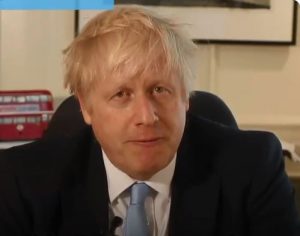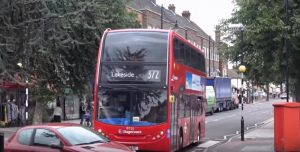
The Guardian / UK: The Home Office’s “deport first, appeal later” policy for removing foreign criminals has been ruled unlawful by the supreme court.
More than 1,100 foreign criminals have been removed from Britain under the system, which was introduced in July 2014. It was a Conservative manifesto pledge and denies foreign criminals the right to launch an appeal against deportation while they are in the country.
But lawyers say that the ruling handed down on Wednesday was expected to “very heavily limit, if not entirely curtail” the routine use of the controversial power.
The ruling, handed down by the deputy president of the supreme court, Lady Hale, and four other justices, said the system breached foreign criminals’ human right to an appeal as their ability to present their case from abroad was likely to be obstructed in a number of ways.
The case involved two men convicted of drug offences who had both served prison sentences. The first, Kevin Kiare, came from Kenya in 1997 with his family at the age of three. The second, Courtney Byndloss, a father of eight, came to the UK in 2002 and was later given leave to remain as the spouse of a British citizen.
In both cases the home secretary issued certificates under 94B of the Nationality, Immigration and Asylum Act 2002, stating that removal prior to appeal would not breach human rights. This had the effect of ensuring that they could only appeal against their deportation after they had returned to Kenya and Jamaica.
However, the supreme court said that even if either man was able to secure legal representation they would still face formidable difficulties in presenting a case.
“Further, the effectiveness of an arguable appeal is likely to turn on the ability of the appellant to give live evidence to assist the tribunal in its assessment of whether he is a reformed character and the quality of his relationships with others in the UK, in particular with any child, partner or other family member.”
The court ruling says the financial and legal barriers to the men giving their evidence live on screen are almost insurmountable. The justices say the Ministry of Justice’s failure to provide facilities abroad to enable them to give evidence means they have been deported without any human rights-compliant system in place that enables them to conduct their appeal.
The supreme court ruling stresses that their decision was not about whether they could resist deportation on family grounds but whether the home secretary had breached their human rights by deporting them before they could bring an appeal in Britain and without making proper provision for them to take part in appeal from abroad.
Responding to the ruling, the immigration minister Brandon Lewis said: “The government has consistently taken the view that foreign criminals have no place in the UK, and we will continue to take action to remove them.
“We are disappointed by the supreme court’s judgment and are carefully considering the implications.”
But Manjit S Gill QC, of No5 Barristers’ Chambers and the leading counsel for Byndloss, said the ruling would halt the use of the power in the deportation of foreign national criminals.
“The supreme court’s judgment will very heavily limit, if not entirely curtail, the home secretary’s use of the controversial ‘deport first, appeal later’ power for ‘foreign criminals’ who wish to challenge deportation decisions on the basis that deportation will infringe the right to family or private life. The court has made clear its disapproval of the routine use of such a power,” he said.
The lawyers said that the home secretary had certified 1,175 foreign national offender deportations as “deport first, appeal later” cases between 2014 and 2016. Only 72 of those individuals had filed a notice of appeal with the tribunal from abroad by the end of 2016.
“As the supreme court noted, this is probably due to the practical, financial and logistical difficulties involved. As of 13 February 2017, not one of the 72 appeals had succeeded. This too reflects the difficulties in appealing successfully from abroad,” said their statement.
The Joint Council for the Welfare of Immigrants welcomed the ruling and said last December the government extended the system to immigration cases by “giving itself the right to remove from the UK anybody with a human rights claim before they could exercise their right to appeal”.
Saira Grant, the JCWI chief executive, said “the supreme court has accepted, as we warned from the beginning, that it is almost impossible to appeal from abroad. They have also upheld the rule of law by making it clear that the home secretary cannot simply avoid scrutiny by removing from the UK anybody who disagrees with her decision.”




